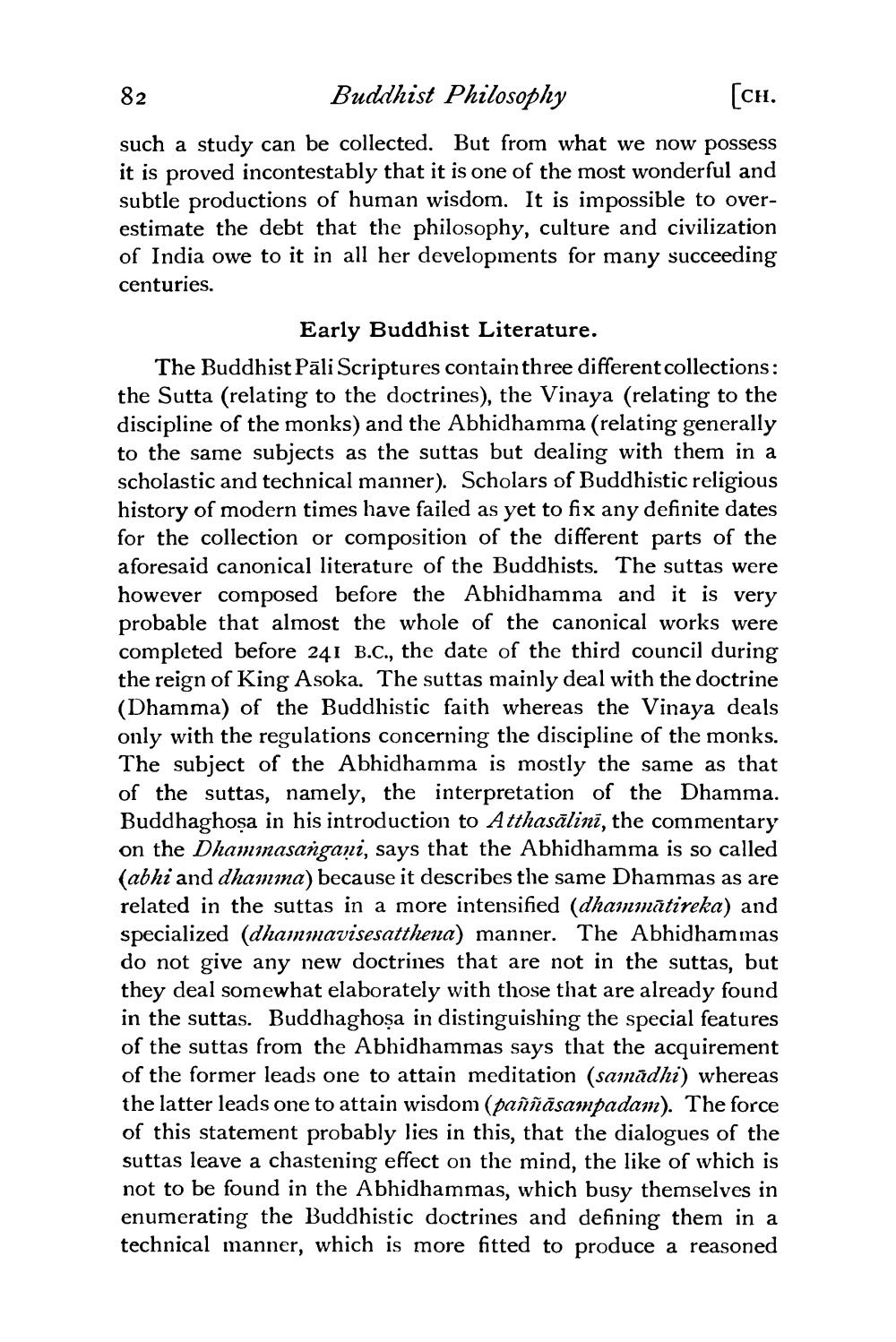________________
82
Buddhist Philosophy
[CH.
such a study can be collected. But from what we now possess it is proved incontestably that it is one of the most wonderful and subtle productions of human wisdom. It is impossible to overestimate the debt that the philosophy, culture and civilization of India owe to it in all her developments for many succeeding centuries.
Early Buddhist Literature.
The Buddhist Pāli Scriptures contain three different collections: the Sutta (relating to the doctrines), the Vinaya (relating to the discipline of the monks) and the Abhidhamma (relating generally to the same subjects as the suttas but dealing with them in a scholastic and technical manner). Scholars of Buddhistic religious history of modern times have failed as yet to fix any definite dates for the collection or composition of the different parts of the aforesaid canonical literature of the Buddhists. The suttas were however composed before the Abhidhamma and it is very probable that almost the whole of the canonical works were completed before 241 B.C., the date of the third council during the reign of King Asoka. The suttas mainly deal with the doctrine (Dhamma) of the Buddhistic faith whereas the Vinaya deals only with the regulations concerning the discipline of the monks. The subject of the Abhidhamma is mostly the same as that of the suttas, namely, the interpretation of the Dhamma. Buddhaghosa in his introduction to Atthasālini, the commentary on the Dhaminasangani, says that the Abhidhamma is so called (abhi and dhamina) because it describes the same Dhammas as are related in the suttas in a more intensified (dhammātireka) and specialized (dhammavisesatthena) manner. The Abhidhammas do not give any new doctrines that are not in the suttas, but they deal somewhat elaborately with those that are already found in the suttas. Buddhaghosa in distinguishing the special features of the suttas from the Abhidhammas says that the acquirement of the former leads one to attain meditation (samadhi) whereas the latter leads one to attain wisdom (paññāsampadam). The force of this statement probably lies in this, that the dialogues of the suttas leave a chastening effect on the mind, the like of which is not to be found in the Abhidhammas, which busy themselves in enumerating the Buddhistic doctrines and defining them in a technical manner, which is more fitted to produce a reasoned




